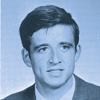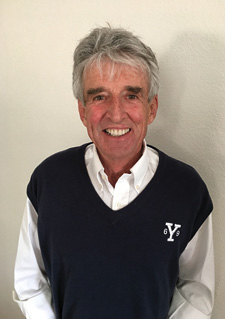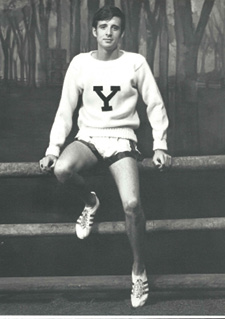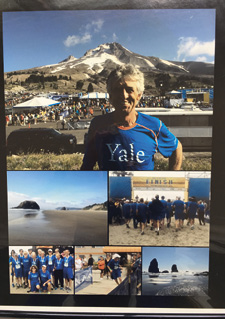Frank Charles Shorter – 50th Reunion Essay
Frank Charles Shorter
 558 Utica Court
558 Utica Court
Boulder, Colorado 80304
runningandmore@yahoo.com
303-717-6276
Spouse(s): Michelle
Child(ren): Alex Shorter, Mark Shorter, Julie Shorter
Grandchild(ren): Adilyn Barton-Shorter and Kaela Barton-Shorter
Education: Yale BA Psychology 1969, University of Florida School of Law JD 1974
Career: Professional runner; sporting goods manufacturer and retailer 1969 to present; television commentator 1978-2000, Chairman, United States Anti Doping Agency 2000–2003.
Avocations: Childhood diet, exercise, education and social and emotional health.
Honors: 1972 Sullivan Award, Outstanding American Amateur Athlete, United States Olympic Hall of Fame, 1984, United States Track and Field Hall of Fame, 1989, Doctor of Humane Letters (LHD) Bowdoin College 2016.
College: Morse
After Yale, A Runner’s Life in the Public Domain
At Yale, running was my refuge. Little did I know that soon after graduation there would be an unexpected paradigm shift. Putting one foot in front of the other for academic stress relief would evolve quickly into a way of life and allow me to both build a career and work for the advancement of my sport. But for Yale, this would not have happened.
My roommate Ken Davis showed me over time how to set my own very personal, realistic, and attainable goals in the classroom. We were both pre-ed and psychology majors. I was the underachiever in the room, but I never sensed a competition. We were genuinely happy with each other’s successes and, through Ken, I learned something simple: an unconditional partner and close friend in a highly competitive, common effort—whether it be in academics, sports, or business—is a gift from God.
It was the same way training with my Yale cross country and track teammates. So, after graduation I knew what to look for as I sought out training partners at the next level. When Kenny Moore, Steve Prefontaine, and Jack Bacheler came along, they were just like my Yale teammates, and I was ready to train with and support them in the same way. The common goal of doing well in the Heps became the goal of making the Olympic team. It worked: We all qualified.
I then decided to enter the NCAA Track and Field Championships and was surprised when I finished first in the six-mile run and second in the three-mile the next day.
In summer ’69, I linked up with Kenny, Steve, and Jack, and I dropped out of medical school to “find out” where my running performances might level off. Perhaps I might even make the United States Olympic team. In 1971, I enrolled in law school as a hedge, but I never leveled off. Three years later I was standing on top of the 1972 Munich Olympic Marathon victory podium, with a gold medal.
After the National Anthem and we medalists descended to the ground, I wondered “what now?” I wanted to run again in the Montreal Olympics in four years, but the Amateur rules strictly prohibited profiting financially from one’s Olympic achievements. I decided to finish law school, pass the bar, and look for ancillary ways to earn a living close to my sport, but not by actually running in races.
Between then and now, on the business side, I have been able to play a role in professionalizing track and field: I did the first endorsement of a product. I was the first to put my name on a wholesale and retail business. Boulder friends and I created a way to allow runners to openly win prize money. All the while I felt my Yale background was an asset; I knew it added to my confidence.
It was in 1998 during the athletes’ fight against performance-enhancing drugs that I feel Yale helped the most. Yale had taught me to be patient and how to look for the right people to trust. Barry McCaffrey and John McCain are two such people and together we worked to give the IOC an offer they could not refuse. The result was the formation of the United States Anti-Doping Agency (USADA).
In retrospect, pursuing my first big political goal in Washington did not seem all that strange. After all, I had survived freshman year at Yale, when we immediately started learning how to adapt quickly to very new and highly competitive situations!

Frank Shorter, April 2018

Cross-Country Team Captain, Fall 1968

2015 Mt. Hood to Coast Relay (with Steve Bittner, Steve Boyer, Carl Pierce, Larry Kreider and Frank Shorter)
If the above is blank, no 50th reunion essay was submitted.
